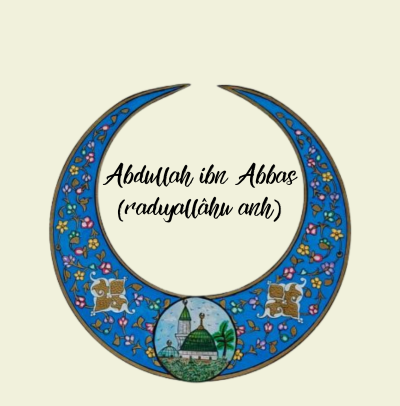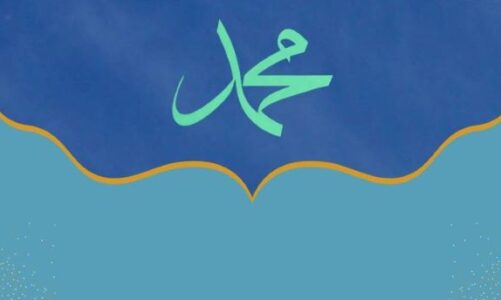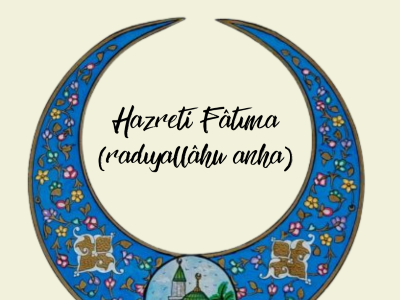After our beloved Prophet, peace and blessings be upon him, the Companions are the ones who best grasped the meanings of the Qur’an. This is because they lived during the time of revelation and learned by asking the Messenger of God about things they did not understand. During his blessed life, the Prophet, peace and blessings be upon him, explained some words in the Qur’an that the Companions did not understand, either through another verse of the Qur’an or synonymous words.
The tafsir (exegesis) based on narrations from the Pride of the Universe, peace and blessings be upon him, and the Companions is called “narrative tafsir,” while the tafsir based on the Arabic language is called “linguistic tafsir.” Narrative tafsir describes topics known through the narration of the Companions and Successors, such as the reasons for revelation and its purposes. Linguistic tafsir is a method that reveals the meaning through language and eloquence, adhering to the purpose and style.[1]
Abdullah ibn Abbas, may God be pleased with him, is known to be one of the pioneers in the linguistic interpretation of the Qur’an.[2] Like other Companions, Ibn Abbas first interpreted verses and words that were not understood with the help of Sunnah and reasons of revelation, and when he could not find evidence from these sources, he would give meaning to the Qur’an through another verse or by utilizing the features of the Arabic language.
Even as a child, Ibn Abbas, who learned some words and hadiths from the Messenger of God, peace and blessings be upon him, greatly benefited from the Honorable Ali and exchanged ideas extensively with the Honorable Abu Bakr, Umar, and Uthman, may God be pleased with them all.[3] This glorious Companion, who was addressed by the Prophet, peace and blessings be upon him, as “the Imam of interpreters, the Translator of the Qur’an, the Scholar of the Nation,” was also the recipient of the Prophet’s special prayer, “O God, teach him the Book.”[4]
Abdullah ibn Abbas described knowledge as, “the Book of God and the Sunnah of the Messenger of God, peace and blessings be upon him.”[5] When asked how he acquired knowledge, he replied, “With a questioning tongue and a heart that understands.” He examined events by asking questions to the leading figures of the Muhajirun and the Ansar, and even had those present with him write down what he learned, contributing to works attributed to others.
The tafsir written by Ibn Abbas has reached our time under the name of Tafsir Ibn Abbas. Scholars like Bukhari and Tabari have greatly benefited from this tafsir.
Ibn Abbas, who memorized more than 70 verses of the poet Umar ibn Abi Rabi’a (d. 95/713) in a single gathering, had a very strong memory. He was a distinguished personality who was well-informed about the past, accurate in his opinions, and mastered Arab poetry and literature, arithmetic, tafsir, and inheritance laws.[6] Ibn Abbas, familiar with many fields of Islamic sciences, is remembered with titles such as “Ocean of Knowledge” and “Translator of the Qur’an.”[7] Considered a strong source and evidence in the field of tafsir by interpreters, Ibn Abbas became the first person to be consulted in the interpretation of the Qur’an after the Prophet, peace and blessings be upon him.
Ibn Abbas categorized the verses that could be interpreted into four groups: verses that anyone who knows Arabic can understand, verses that no one can be excused for not knowing their meaning, verses that only scholars can understand, and verses whose meaning can be known only by Allah.[8] He did not respond to questions about the interpretation of the fourth group of verses, focusing mainly on the first three groups.
Abdullah ibn Umar, may God be pleased with him, expressed his amazement at Ibn Abbas’s knowledge in the field of tafsir, saying, “I was amazed at his courage in tafsir, now I really understand that he possesses Divinely bestowed knowledge.”[9] Ibn Abbas, who trained about 15 famous students in the field of tafsir, not only gave one-on-one lessons to his students but also facilitated the increase of their scholarly levels through his talks after Prayers. He even taught lessons to those who did not know Arabic with the help of a translator.
Born in Mecca three years before the Hijra as the child of a Muslim family,[10] Ibn Abbas, according to narrations, migrated with his father, and the Messenger of God, peace and blessings be upon him, welcomed them at the location of Juhfa. He participated in the conquest of Mecca, witnessed the conquests of Hunayn and Ta’if, and attended the Farewell Pilgrimage.[11] Ibn Abbas spent his youth during the caliphates of the Honorable Abu Bakr and Umar, and was about 25 years old at the death of Umar ibn al-Khattab. Umar invited him to scholarly gatherings attended by the leading Companions, facilitating the early growth of his knowledge.[12]
Abdullah ibn Abbas passed away in Taif in the year 68 Hijri (687 AD) at around the age of 70.[13] This exemplary Companion continues to shine like the stars in the sky after his death. Let us be thankful to God for sending us the stars of the Companions to illuminate our path.
[1] Abdurrahman b. Muhammad b. Haldun, Al-Muqaddima, Ed. Étienne Marc Quatremère, Beirut: Maktabatu Lubnan, 1992, 2: 394.
[2] Jatlawi, Qadaya’l-Luga fi Kutubi’t-Tafsir, 46.
[3] Ibnu’l-Athir, Usdu’l-Ghaba, 3: 194; Muhammad Abu Zahra, İslam’da Fıkhî Mezhepler Tarihi, Tr. Abdulkâdir Şener, İstanbul: Hisar Yayınevi, 1976, p. 67.
[4] Abu Abdillah Muhammad b. Ismail al-Bukhari, Al-Jamiʿu’s-Sahih, Ed. Muhammad Zuhayr b. Nasr, Daru Tawki’n-Najat, 1422/2001; Kitabu’l-Ilm, 17 (No: 75).
[5] Ibn Abdi’l-Barr, Jamiu’l-Bayan, 1: 26.
[6] Ibnu’l-Athir, Usdu’l-Ghaba, 3: 193; Ibn Kathir, Al-Bidaya, 8: 301.
[7] Ibn Sa‘d, At-Tabaqatu’l-Kubra, 2: 120-121; Ibn Kathir, Al-Bidaya, 1: 272.
[8] Abdulhamid Mahmud Tahmaz, Abdullah b. Abbas: Al-Imamu’l-Bahr Alimu’l-Asr, Egypt: Daru’s-Salam,
1987, p. 91.
[9] Suyuti, Al-Itqan, 2: 187.
[10] Shah Mu’inuddin Ahmad; Said Sahib Ensari Nadwi, Büyük İslâm Tarihi Asrı Saadet Peygamberimizin Ashâbı, Tr. Ali Genceli, İstanbul: Şamil Yayınevi, 1337/1967, 2: 178.
[11] Ibn Kathir, Al-Bidaya, 8: 296.
[12] Abu Abdillah Muhammad b. Sa’d, At-Tabaqatu’l-Kubra, Ed. Ali Muhammad Umar, Cairo: Maktabatu’l-Hanaji, 1421/2001, 2: 366.
[13] İsmail Lütfi Çakan; Muhammed Eroğlu, “Abdullah b. Abbas b. Abdülmuttalib”, Türkiye Diyânet Vakfı İslâm Ansiklopedisi, İstanbul: TDV Yayınları, 1988, 1: 76–79.




